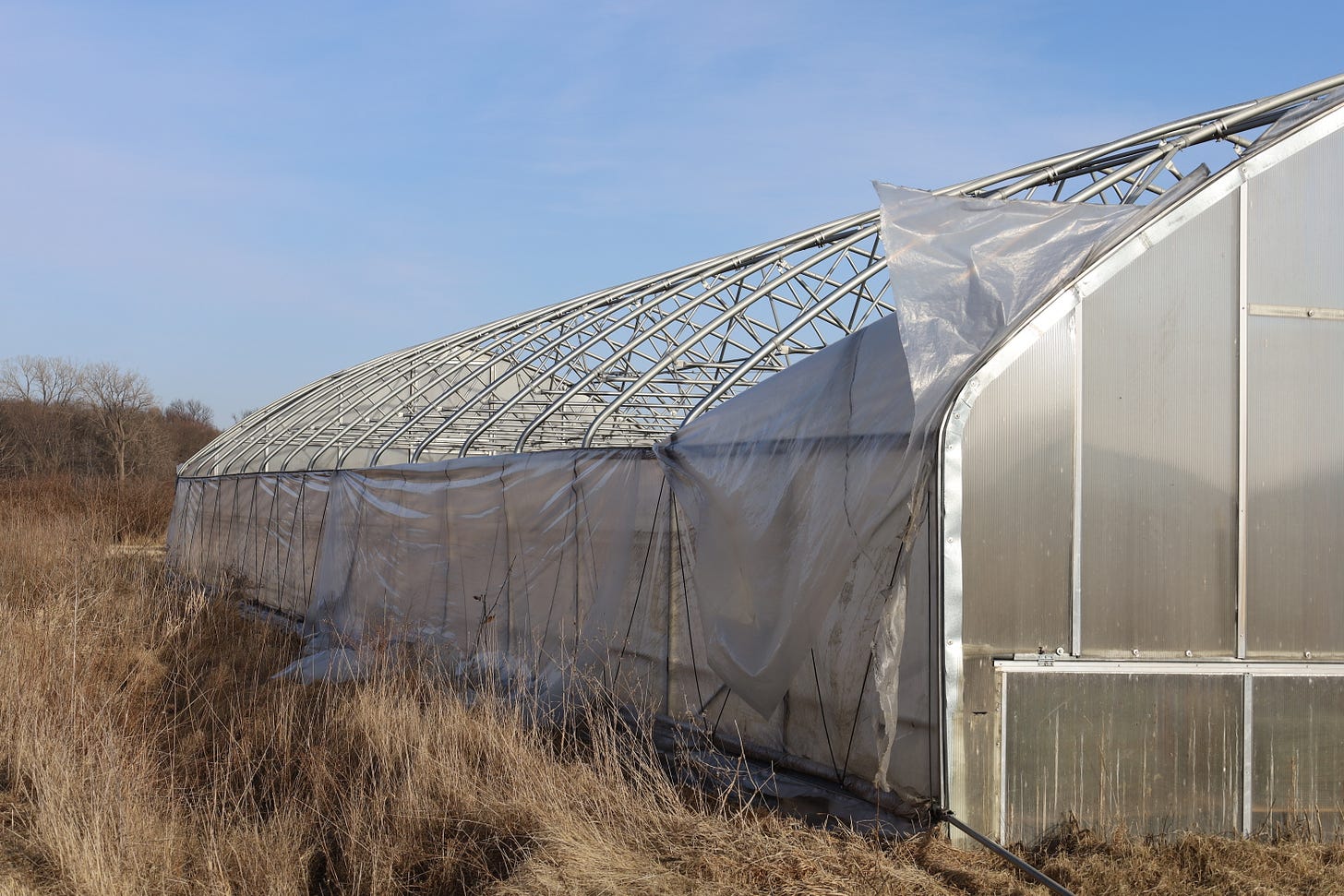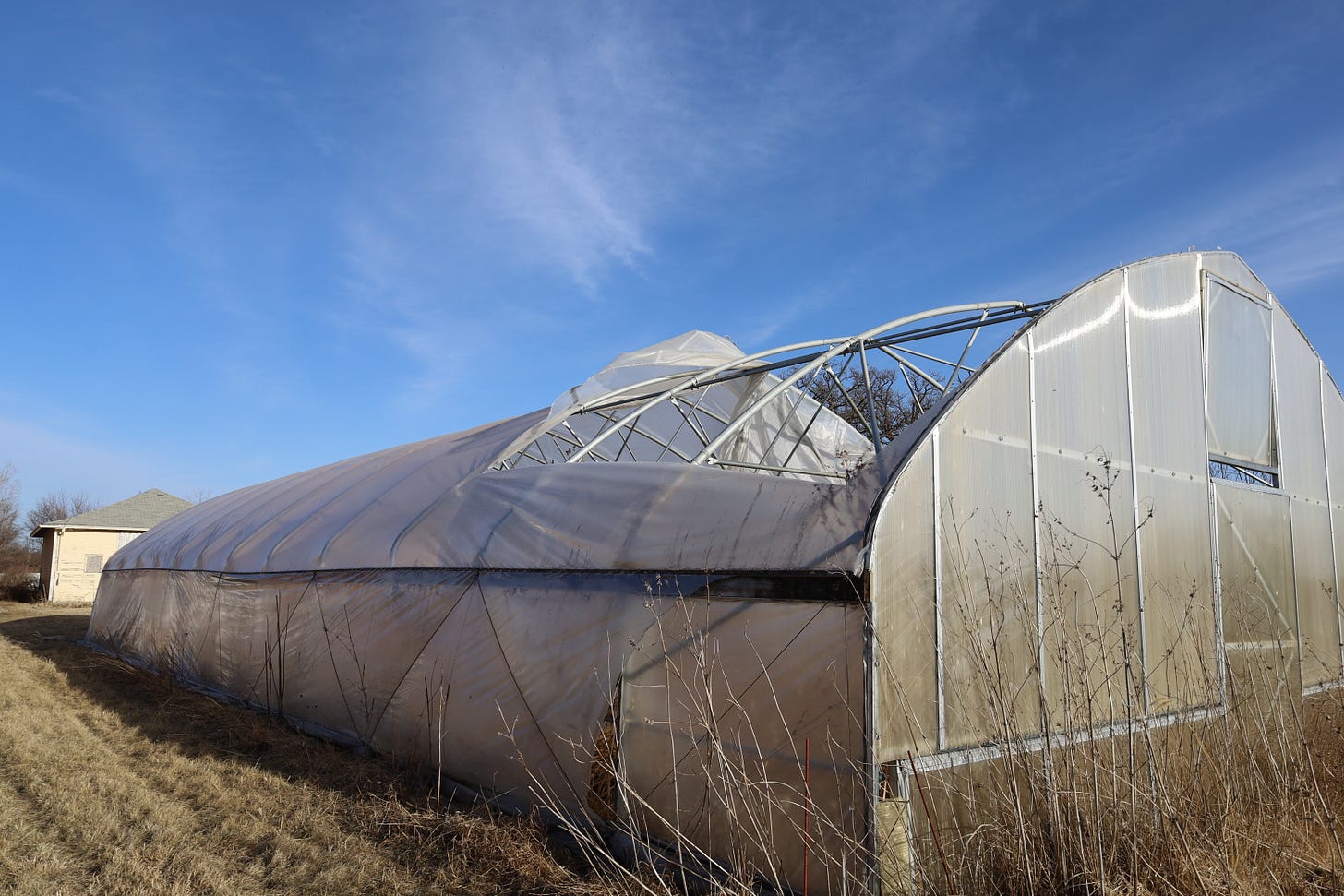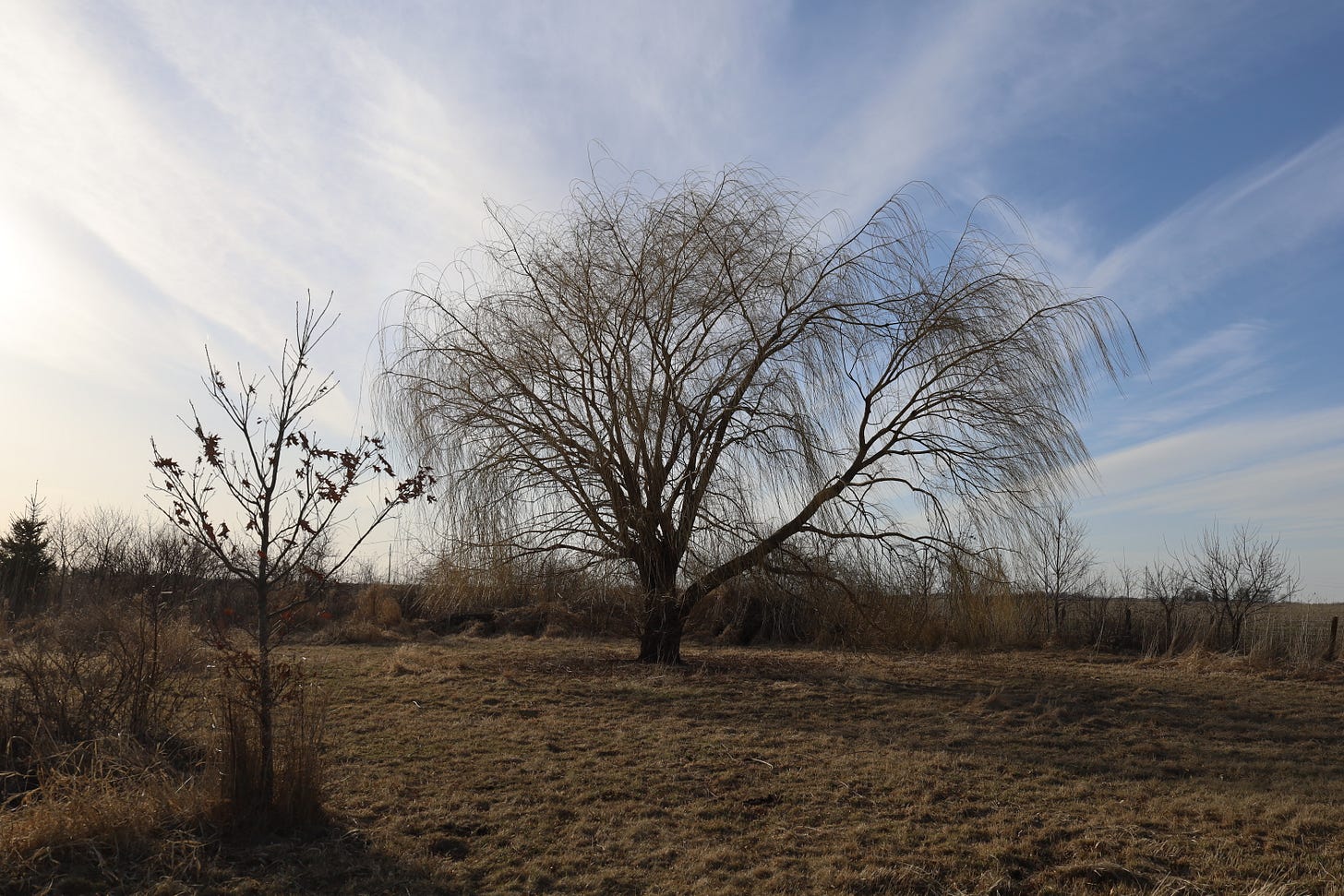I have lived in a rural area for about half of my life. Another significant portion of my time has been spent in areas many would not consider metropolitan in nature. That means I have experienced many of the issues that come with living in a less densely populated portion of the United States.
For many years now, I have tried to point out to others that the idea of running government “like a business” is actually a very bad idea - especially if you are talking about rural America. I can actually say this as a person who has run my own farm/local food business and as a person who has tried other small business options in the past.
Rural America is a different animal altogether. Many of the basic services will not be profitable out here. But the people and places in Rural America should still receive quality medical care, reliable delivery services, sound infrastructure such as roads and bridges, phone and internet services, responsive emergency services, quality schools and education, access to the arts and publications, natural public spaces, recreation areas, and regulations that protect us from bad actors.
The reality of rural Iowa as a small farm business
In the 2000s, when I was a newer farmer and I was doing my best to learn the trade, I read a LOT of books, attended seminars and conferences, and perused content from many of the recognized local foods gurus of the time. Many of the most prominent experts in the field were, to be brutally honest, completely out of touch with the realities that a grower near Tripoli, Iowa, was going to experience.
Some of these individuals suggested that, if we followed their processes, we would be able to earn much better than a living wage. By way of proof, they shared some baselines for pricing and business financials that certainly looked attractive. All we had to do was invest in the infrastructure and come up with all of the starting costs. Everything would work itself out from there as long as we followed the recipe. Whether they meant to do this or not, there was an implication that, if it didn’t work, it was probably because we didn’t do it right or we hadn’t dedicated ourselves to the program.
Since I am usually skeptical of any “one size fits all” solution, I did more digging before buying in.
There was usually one significant difference between my reality and theirs that was not accounted for - the proximity of a population base that would support the pricing structure and scale of the operation needed for their process to work. In each of these suggested programs I found that the person(s) suggesting the idea had the benefit of a bigger customer base than I ever would.
To put this simply, the number of people who might be willing to patronize local foods at prices that would provide a living wage for the grower is lower in rural America. And, while the price point that works to ensure sales in rural areas is lower, it does not follow that all expenses adjust to these prices.
Speaking of expenses, we recently lost the plastic on both of our high tunnels (we named them Eden and Valhalla). The price of plastic to re-cover these buildings will be roughly the same for us as it would be for someone on either coast or any place closer to a major metro. There is no “rural discount” for us.
Instead of a discount, we often deal with a “rural penalty.” Currently the price of gas in the town closest to us is $3.09 per gallon. The price in Des Moines averages $2.88 and is as low as $2.67. If you want something shipped to a rural area via some of the private carriers, the cost is higher the further they get from a population center.
Does this mean a small farm like ours can’t succeed in rural Iowa?
Well, I think they can. The Genuine Faux Farm did well enough from 2004-2019 and continues to provide some supplemental income to the present day. But it did not provide a living wage. We had to have Tammy’s off-farm income and the insurance that came with it. And in the interest of full disclosure, we started doing significantly better for ourselves once I stopped working on the farm full time and took the off-farm job with Pesticide Action Network.
The reality is this - in order for a small-scale, diversified farm focused on local foods to succeed in Iowa (and other rural spaces) - there need to be some public supports in place.
Earning and building value vs making money
Somewhere on our journey we lost our way. True, it’s probable that many started lost and liked it there. But there were (and still are, I hope) many people, businesses and governments that have understood that there is a difference between building value and just making money.
And when I say value, I am referring to a broad range of qualities of which money is only a portion of the whole. Value includes reliable, quality services for the community. Value has components that are investments in future possibilities (such as education). It considers quality of life and opportunities for future generations, not just profits for the next quarter. Value is about making things that last and work well - whether that thing is an organization, a product or service.
Some are tempted to try to quantify things like quality of life, available opportunities, good food, the beauty of the natural world, and the sense of belonging to a healthy community. But we can’t accurately quantify these things other than to say WE ALL LIVE BETTER when these are in place. When we attempt to translate living better into quantifiable dollar signs, we give too much value to insubstantial money creators that provide no other value than money on their own.
And that’s where it seems we have gotten stuck.
Examples where “run it like a business” fails in rural Iowa
First, I want to make an important assertion. A rural person is no less valuable than someone who lives near or in a population center. For instance, rural people deserve quality, locally-produced food as much as anyone else. They should also be able to acquire that food for a fair price that reflects the income levels of the region. And if they can’t afford the food, there should be opportunities for them to receive it.
Unfortunately, this often means the local food producer has to accept prices that are lower than the amount suggested by the “recipe” for a successful farm that provides a living wage. That formula does not work unless you modify some of the variables.
For example, we could develop a program that makes health insurance more affordable for someone running a small, diversified farm that provides food for their community? Well, surprise! We actually had a good start on one. The Affordable Care Act (ACA also known as Obamacare) actually provided relief in that area. It isn’t perfect, but it’s far better than what existed before and it certainly could have been the jumping off point to make things even better.
But never mind, the current government mentality is to run things like a business by removing things that provide non-tangible services rather than dollar signs. Things like human health are intangible, which means the ACA is in danger and so is Medicaid (and Iowa’s HAWKI). It won’t be long and we’ll be back to the untenable situation where health care and health insurance are impossible for many rural Iowans.
Another thing that has been a big help for our small farm over the years has been the reliability and relatively low cost alternative that is known as the US Postal Service. I feel I need to remind everyone that the USPS is the only carrier that will carry and deliver live chicks. Fedex won’t do it. UPS won’t do it. USPS does.
The point I want to make here is that mail and package services in rural areas, if you run them purely as a business that measures success with dollars (profit/loss), will not succeed. The distances are too great. The expenses are too high. And the population is too spread out to provide enough customer base to cover those costs. UPS (United Parcel Service) is illustrating the problem as they remove package pick-up points in rural Iowa because they can’t justify the cost with their profit-based model. What can Brown do for you? Well, they can’t provide full service to rural Americans.
This is where government has an obligation to its people to step in. The government must go where businesses fear to tread because they have a responsibility to their citizens to provide all of them with basic services. The payback is in the value that is built up in ways that aren’t easily trackable by the dollar sign, but the benefit will be felt.
But the current administration is attacking the USPS (not that any recent administration has done many favors for it). Providing basic communication services to rural America is bad business - as long as you only consider dollars and cents.
Another service that Iowans and others in “Tornado Alley” rely heavily on is the National Weather Service and NOAA. In order to help predict severe weather, they send up sounding balloons at several locations throughout the US. Because of recent ill-advised and poorly considered staff cuts by the current federal administration, there are not enough staff to send up these flights in Omaha, Nebraska and Rapid City, South Dakota.
Most of Nebraska, much of South Dakota and a large part of southwest Iowa are not going to have accurate forecast data.
Is now a good time to remind everyone of the Greenfield tornados last year? How many more people would have died or been severely injured if there were not accurate forecasts and an efficient warning system?
Well, guess what, we don’t have that system in place right now. Why? Because we’re running government “like a business.” A very badly run business.
Then, there are programs like the Iowa Local Food Purchasing Assistance Program. This is a program that came too late to help our farm. While we could have participated if we had wanted, we did not feel that we should receive those funds. I felt it was more important that growers who relied on a higher percentage of their income from their farms have access to it.
Rather than create my own words, let me take this quote from the Iowa LFP website:
[C]ooperative agreements [with local food producers] will allow for state and tribal governments to procure and distribute local and regional foods and beverages that are healthy, nutritious and unique to their geographic area. The food will meet the needs of the population, and serve feeding programs, including food banks, and organizations that reach underserved communities. In addition to increasing local food consumption, funds will help build and expand economic opportunity for local and socially disadvantaged producers. Through this program, producers will be able to sell to food access organizations through food hubs and food banks.
I am proud to say that those who built the program in Iowa created a model that led the nation in its efficiency and effectiveness. One would think anyone who was a proponent for well-run efforts wouldn’t want to mess with this.
So, of course, the current administration is pulling funding from this and some of the other programs that help smaller-scale, local producers get closer to that living wage. Apparently, it doesn’t matter if it works and works well because it was part of the “Build Back Better” program from the prior administration and was funded under the direction of the American Rescue Plan. (If you take that last link, you will see that the page is “no longer found” because, if you delete a page, the program or act didn’t exist.)
By the way, the Iowa LFP cuts are part of $1 billion cut from USDA programs that also help fund our food banks AND provide them with money to purchase food from local producers. This is being done even though 2/3rds of Iowans, regardless of political party affiliation, feel that food insecurity is an issue in their communities. That same 2025 survey tells us that 82% of Iowans want programs that purchase local foods for food banks to expand (including 78% by those who identified as Republicans).
So, of course, with Republicans in power in the White House, US Senate, US House, Iowa Executive branch, Iowa House and Iowa Senate… We’re going to cut that funding.
Because making money is more important that feeding people and making sure basic needs are met in the rural spaces of the United States.
Now, some who read this might suggest I am being whiny and I need to toughen up. But I’m here to tell you that I am a rural Iowan and I’m already pretty darned tough because that’s how we’re made. You don’t go out and work in heat indices that surpass 120 degrees Fahrenheit or in windchills 20 below zero if you don’t have a bit of that toughness.
In fact, I’m tough enough to work through the intense desire to ignore politics / current events and, instead, write articles like this.
But even tough people wear down and grow tired of working as hard as they can, only to find that the sales they planned to have for the coming growing season have been taken away. Or discover that the service that delivers chicks to your farm so you can raise food for others won’t reliably serve you anymore. Or realize that visits to see the doctor, dentist, physical therapist, etc. aren’t a choice because we either can’t afford them or the hospitals and clinics are a hundred miles away because they have to be run like a business too.
Even tough, worn out, rural people deserve quality services, good healthy food, and opportunities to support their families, their communities, and their futures.
Being tough doesn’t mean you shouldn’t also be a realist. The reality is there are many things that won’t be profitable in the monetary sense where we live. We need some things to be run as a government service and not a business because that’s the only way we can have them. We need to accept and embrace value that comes in forms other than the almighty dollar.
This isn’t all gloom and doom, however.
We ARE tough and independent. So, we should be making a whole bunch of noise right now. We need to be writing some things down so we remember who was in charge during the next election. And we need to be taking note of the services that are important to rural spaces so we can build a new plan that puts these things in place so we can run them like a valuable service.
In the meantime, it’s time to let those in power know we aren’t happy. Phone calls. Letters. Emails. Use some of the talking points above if you wish or create your own. It doesn’t matter if you are Democrat, Republican or Independent. All rural people are being told they have no value.
Shown below are our Iowa officials - both of our US Senators, all four of our US Representatives, our Governor. I want it noted that ALL of our US Senators and Reps (and the Gov) are Republicans right now. So, if you voted for them, you have a duty to hold them accountable. They have all abdicated their duties in that regard.
I will not forget that. I hope you don’t either.
If you read the Genuine Faux Farm newsletter and do not live in Iowa, I encourage you to find your lawmakers and make your voice heard too!
Contact Mariannette Miller-Meeks
If you wish to contact your Iowa legislators, here are links to those lists:
Contact your Iowa Representatives
Thank you for reading and considering my thoughts and words. Of course, I do not expect that you agree with everything I say - but I hope you understand that I do not offer these words lightly. Regardless, I hope they can be of service to you.








Again, thanks, Rob. You raise important points, illustrate with well-chosen examples, and reinforce the importance of being a collaborative society, where we support each other. Your words help me understand the issues so that I can advocate more articulately to decision-makers. (And yes, as a fellow math teacher, I, too, have to repeatedly note that not everything can be meaningfully quantified!)
Thanks Rob! Well said, and very timely.
On some days, it is hard to believe that there is NOT a plan in place to depopulate large parts of rural America, leaving only the very few that are needed to keep the industrial ag enterprises going.